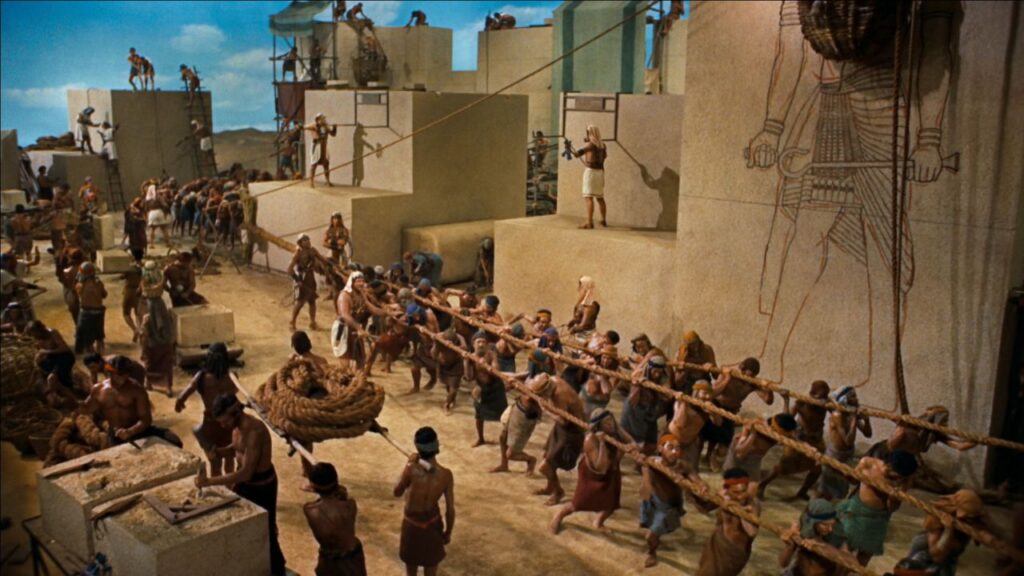Why automation is not going to happen

There is much talk of our automated future.
Robots and machines of ever-increasing power gradually eliminating the need for busy human hands. Driverless cars and trucks, crops and fields harvested by fuel-burning advanced appliances, a supply chain assembly line of processed goods delivered via unmanned vending machines and drones.
This complex robotic dance will supposedly take the human touch away from the very process of survival, the dream-future culmination of the spiritless and security-obsessed ‘last man’. The downward-looking grug of the Jetsons, who sees in technology not the possibilities of heroic adventure or exporation, but new ways to fill his belly as a conveyor belt carries him through the shopping mall’s assortment of plastics like a gouted Medici borne past galleries on a litter of grunting servants.
It is from our elite and inane chatterati that we hear this undesirable and labour-free future spoken of as both inevitable and an unquestionable good. They understand nothing of risk or adventure, only the dream that a floating chair will carry their fat bodies from the gossip console to the games console. They know too the population they are appealing too have been degraded and ‘Walmarted’ down to a low level of convenience addiction.
But luckily for these larval, soft-faced numpties (and despite these fond dreams of techno-daddy saving them from the scary self-sufficiency) I do not believe their precious dreams of relaxation will come to pass. Or, if it comes to pass, it will do so only to a certain highy inconvenient way, and then only in some farcical programmed accompaniment to disintegrating liberal social routines.
My reasons are as follows.
Overconfidence in Technology
Firstly, I would point to the mistaken faith in technology itself, the failure to understand what technology is, and where it comes from.There is no mechanical replacement for the nuances of the organic human touch in any craft or techne, in any ‘object that is made’ from the simplest to the most monumental.
But what is it? Derived from the Greek, the root of techne is τέχνη, is often translated as ‘craftsmanship’, ‘craft’, or ‘art’. Technology being the artful and functional answer to philosophical questions posed in the spirit of experiment and curiosity. It is not a ‘commercial’ exploit, and its social benefit in any sense is generally incidental. It is the pursuit of knowledge; it is Fleming discovering penicillin and Galileo the telescope; it is derived from the combination of imagination and ingenuity of the people who’s word this is. It is not produced by an ability which universal.
So let us examine specifically some of the automation-lover’s obsessions.
Diverless cars: what is the functional point of a driverless car over a train? The driverless car faces many variables requiring the organic deftness of a human hand (to avoid the almost limitless random accident possibilities). If it is a matter of perpetually following a single route, what is the advantage of the expensive and intricate technology required to keep the road filled with insentient automatons? And how is their use then practical when it merely displaces a human work force that is then either dangerously mass-impoverished, or in need of state benefits to survive? At what point does the locally grown and made become less hassle than the goods of the supercomplex supply chain system? Additionally, people used to drive for fun, it is still as such considered a sport, another outlet for a man to test his mettle and have fun. Now it is reduced to a safety transport routine.
Robots: there is the ongoing conundrum of the ‘robot’ as a concept. Robots require enormously expensive, technical, highly trained assemblers and maintenance systems, simply to create a less functional facsimile of a creature (a human worker) which you can create by making love to a woman. As there are abundant humans about, and as their creation is an intricate aspect of our life’s very purpose, and additionally these people we create also need jobs, the creation of a less capable, high-maintenance machine to clumsily imitate and supposedly replace a human seems a silly pipe dream. A kind of pantomime of technology and its point, a superficial display which works against improving human capability.
The ridiculous plastic sex dolls of contemporary ill repute come to mind – a totally pointless carnival trick for the misanthrope loser. Only by the spoiled values of luxury-increasing and wilful idleness (an anti-Greek notion) can we rationalize the creation of bordellos of plastic sex dolls which are themselves inferior even to one’s unaided imagination. It is that feeble techno-excitement of the latest HD TV or running shoe, the convenience-culture mob frenzy for the trendy ease-increasing knick-knack. Which itself only sets an already declining culture along a new axis, replacing abundant old jobs with fewer and more specialized ones (robot maintenance). And all this to supposedly attain a pathetic quasi-democratic pipe-dream that cheapens life for everyone on the seemingly bottomless ride from quality to quantity.
But every ride comes to an end.
Better to have our usable technology made by human hand, than the illusory techno-culture excitedly peddled by our hidden oligarchy, as the chaotic brainwashed hordes bolt randomly through their lives like rats in a maze. Like the sterile and overly fluid CGI ‘blockbusters’ we blandly endure, a lifeless process is set in motion, where the illusion of an improved system results in a miserable re-organization of labour toward a lifeless and often dysfunctional end result. The work of human hands is a paramount requirement of true art and culture. It is organic change, with its errors and random twists, which increases complexity and heightens virtuous challenges. It is the spreading, dividing branches of the upward-growing tree.
We Are the Technology
We are transitioning from the master class to the slave class, and our technology will fade away as we retreat. Where does technology come from? Obviously, techne is part of the transmitted knowledge of tradition, handed down from fathers to sons, advanced incrementally by each new generation since recorded history (the written word) dragged us out of a plant-like and questionless ice age existence.The very purpose of the automated society will fade, as everything fades in the false shadow of a culture which no longer sees its future in the faces of its children.
But the true technological age is at least partially over, because the men who produced it have lost control of their society and are ruled by the contrivances of that same technology. The remnant fire of their inventions are currently maintained only by a very faint pragmatic flame, itself kindled by the necessity of these men feeding their families. Yet they are trapped in a civilization removed from their stewardship, and for this reason both it and they are failing. When all the high technology that is their creation (and which in a natural scenario would be theirs to do with as they see fit) is officially peddled away by the hostile’s in charge, that technology will begin to fail. And those in charge will not even understand how or why it is failing, let alone how to fix or maintain it.
Like poisoning the roots of a tree and still expecting its branches to bloom.
It will lose purpose, it will evaporate in a cloud of cultural confusion. When we go, so does our creation. The liberal hysteria-dream that creative power is universal, and that only happenstance and cruelty gave certain groups any advantage, will be left naked in its deceit. Smooth technological ballets of driverless cars and caregiving assembly-line sex robots (requiring impossibly Utopian low-crime and riot-free environments) are already a pipe dream in nations officially ruled with an iron fist by entitled managerial feminists, speculating corporate conglomerates, and gangster-rapping mayors. These systems will increase in tension and dysfunction and eventually collapse. We will not be able to run so much as a bus service, let alone some naïvely optimistic Jetsons-world of automated flying-car idleness.
And yes, we will be displaced, and we will be suffering, before it is all over, because the average man was too cowardly to face his cognitive dissonance or his new relationship to technology. But in the cycle of things, great sweeping changes are as inexorable as the wind.
If the goal is to put most of us out of work, with the remainder literally enslaved to keep the machine turning for foreign masters, this too is perhaps an irrational religious mistake on the part of our money-power overlords. They overestimate their own abilities, and the nature of the disparate groups they are grating against one another. A peaceful and intact global shopping-mall world of their imagining is a foolish dream which over-optimistically ignores the chaotic laws of entropy, parsimony, and tribalism.
The Human Hand Does It Better
People need rewarding employment, not increased luxury and lethargy. There is no mechanical replacement for the nuances of the organic human touch in any craft, intricate invention, or in any type of creation. The assembly-line process and its supposed time-saving fruits benefit only the profiteers among the economy-manipulators, the materialist bosses and the nefarious middle-men, all of whom are concerned only with wealth-accruement for its own sake, and work-avoidance as spiritual credo. Materialism and gold-collecting were once considered vices and not virtues. In this sense it would be better to have open slavery, for we ourselves are already in a situation of early enslavement – albeit undeservedly, as we have enslaved ourselves. But we falsely feel we are free.
The ‘human touch’ has exciting and baffling nuances of eccentricity, of excellence-in-the foibles, of creating things that resonate with spiritual value as well as utilitarian. There will never be a purely technical replacement for the man, who will not only do a better job but will dream up purposes that require jobs to begin with.
In summary, it is my opinion the automated future will simply not come to pass for the stated reasons:
- Because we are better off using human capital, and we can create humans by natural reproduction; and this human, who emerges naturally, can hopefully feed himself most his life without a machine’s maintenance cost, not to speak of the fact that he always has the potential to become his own wealth generator. There is no hidden potential within a machine lying beyond its explicitly designed purpose. And should the naturally created human face the choice of slavery or death, it is best not to be distressed by this fact, but to hope that he will spend his time in some worthwhile endeavour. We today have had easy lives but no proper purpose. But the creation of life is the affirmation of life, and whatever nature’s plan, we must seed our plot and strive ever upwards, never shirking from the duties imposed by life’s harsh necessities.
- Automation will not happen because complex machinery has additional limitations and drawbacks in terms of unpredictable accident-creation (due to cognitive reaction limitations). It will not happen because of its industrial pollution, its fuel-necessities, its expensive high-tech upkeep, the aftermath unemployment for the humans it replaces, and the new lower-ability unemployed who will have neither the ability nor the interest to maintain it. Parsimony is built into existence, and increased complexity is very rarely the easiest or best route to any pragmatic result.
- And if none of those reasons are convincing, then finally and most importantly, automation will not happen because technology is above all the artifice of a certain tradition of man, and is gradually now in decline along with his demographic, and will fail completely when he is removed absolutely from its preservation and husbandry. The very purpose of the automated society will fade, as everything fades in the false shadow of a culture which no longer sees the future with heroism or optimism.
Now this is not to say there is not a certain use for robots, or for advanced technolgy, far from it. But nothing at all of any value will happen until we once again have our own space to breathe freely. All grand predictions and projects will be half-hearted and futile, even those that are planned toward further suppressing and dissolving us, for all peoples sincerely believe themselves to possess the abilities of the men who developed techne.
They do not.











